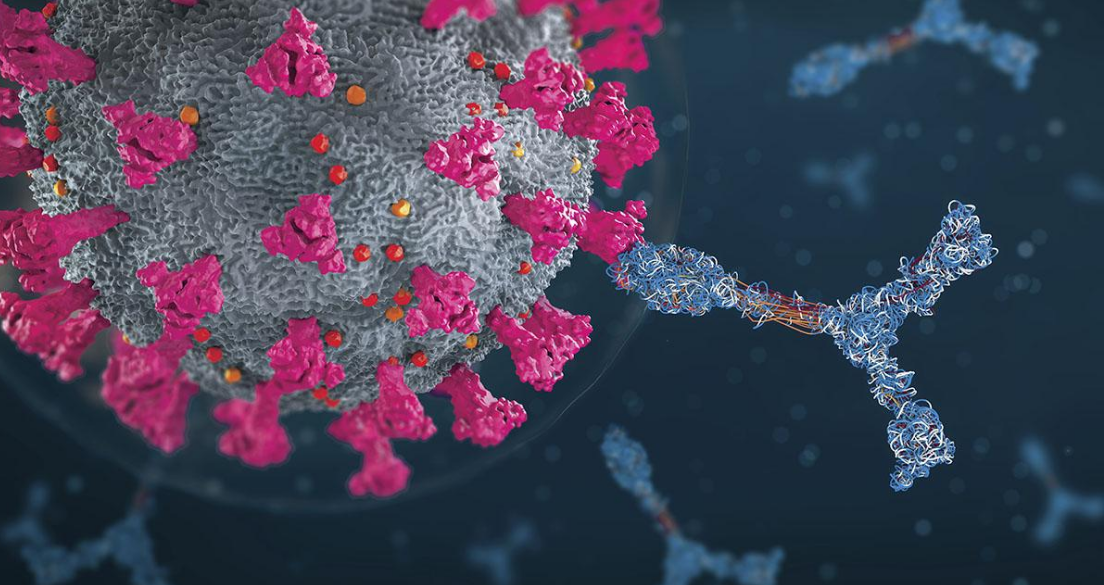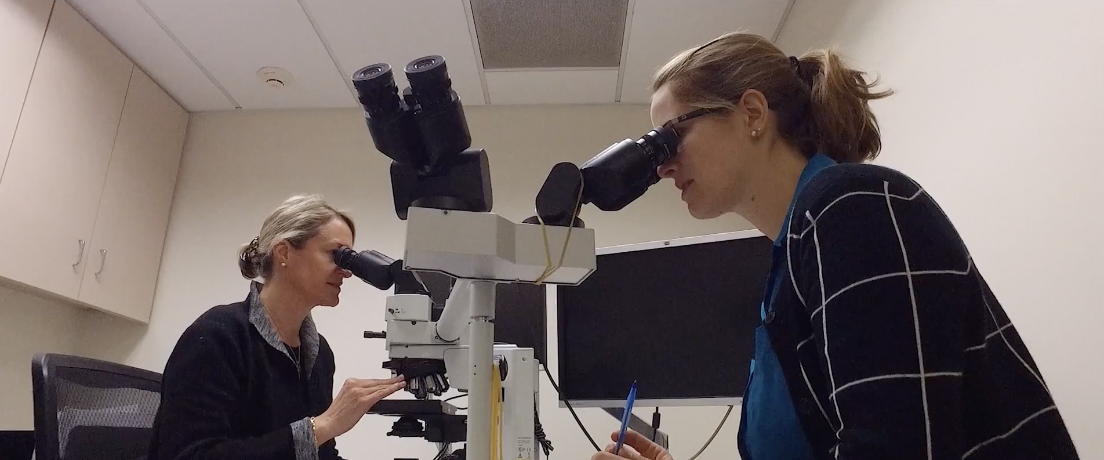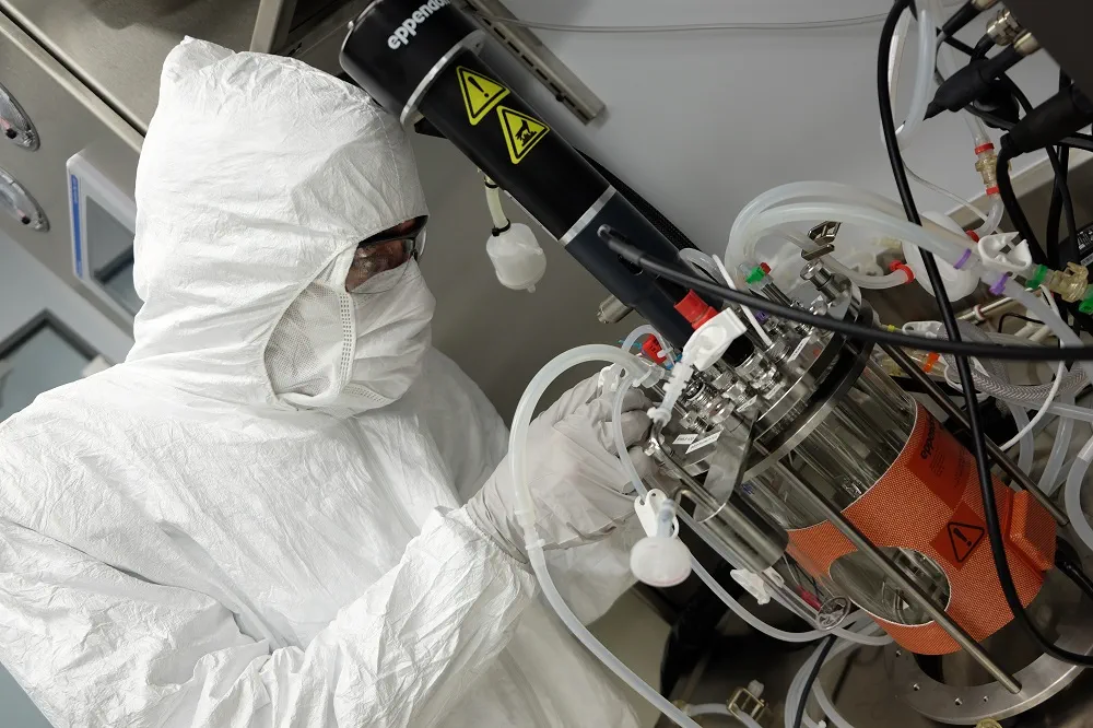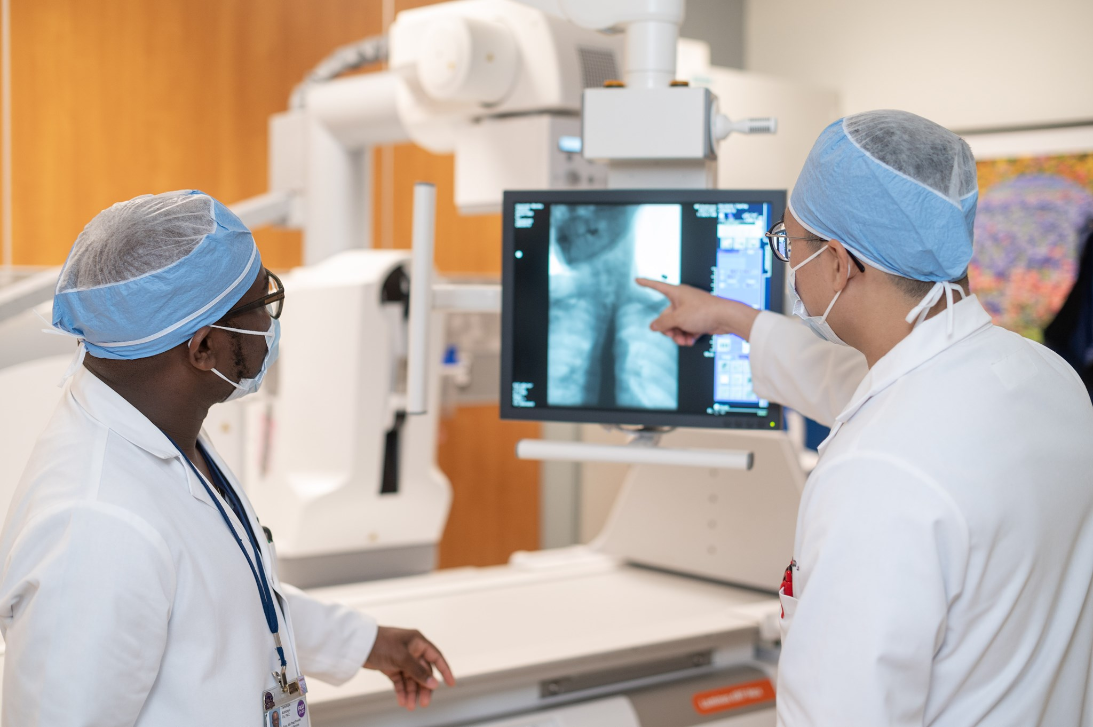Driving Medical Research Breakthroughs
Driving Medical Research Breakthroughs
How academic medicine is unlocking the future of mRNA
The COVID-19 vaccines could lead to personalized, cancer-fighting treatments

Driven by the success of the mRNA vaccines that have proved so potent against COVID-19, scientists working in academic medical centers are exploring the potential for this new and flexible technology to be used in novel ways for other infections and possibly for the treatment of difficult-to-manage conditions like cancer.
Key Takeaways:
- The possibilities for the field are immense, researchers say.
- Dozens of clinical trials that use mRNA to fight cancer and other diseases are currently underway at teaching hospitals and academic medical centers across the country.
- The technology allows potential treatments and vaccines to be developed in a short timeframe and at low cost, even in small quantities for rare diseases.
- Researchers are homing in on personalized vaccines—developed and keyed-in to specific mutations—that they hope will teach the immune system to recognize and destroy cancer cells.
Life is slowly returning to normal for many Americans. But for researchers at academic medical centers across the country, the success of the COVID-19 vaccines means the pace is only picking up.
The development of truly effective vaccines being used widely in less than a year after SARS-CoV-2 made its debut in China has been likened to a feat on par with the moon landing. But the pioneering mRNA technology that spurred that rapid advancement is actually the result of decades of research inside the labs of academic medical centers.
Now, researchers believe that achievement will usher in an extremely promising change in the methods available for vaccine development and advance the standards of patient care for a wide range of diseases. The possibilities, they say, are vast—and academic medicine’s more than 400 teaching hospitals and health systems and over 150 medical schools across the U.S. are once again leading the way.
“The vaccine field has been forever transformed and forever advanced because of COVID-19,” says Dan Barouch, MD, PhD, director of the Center for Virology and Vaccine Research at Harvard Medical School.
“The vaccine field has been forever transformed and forever advanced because of COVID-19.”
David J. Skorton, President and CEO of the
Association of American Medical Colleges (AAMC)

Credit: Stanford Medicine
A Flexible Platform
mRNA technology has the potential to unlock incredible discoveries and treatments— everything from novel treatments for cancer to a vaccine for HIV.
“The whole platform is very, very flexible,” says Norbert Pardi, PhD, a research assistant professor of infectious diseases in the Perelman School of Medicine at the University of Pennsylvania. “You can use mRNA vaccines for many things.”
From cystic fibrosis to malaria to influenza and a universal coronavirus vaccine, mRNA research —much of it funded by the National Institutes of Health—could play a vital role in fighting and preventing future outbreaks from many diseases.
Medical professionals, researchers, health care workers, and students working across academic medicine are at the helm of these efforts. Dozens of clinical trials using mRNA vaccines against cancer and infectious diseases are currently ongoing across the country.
“The next couple of years will be really exciting and tell us more about the range of applicability of mRNA vaccines,” Pardi says.
The wide variety of diseases mRNA vaccines could target isn’t the only reason this technology is so promising. It can also create therapies in less time and at lower cost than traditional methods — even in small quantities, opening the door to faster turnarounds, new discoveries, and more accessible treatment of rare diseases.
“The next couple of years will be really exciting and tell us more about the range of applicability
of mRNA vaccines.”
Norbert Pardi, PhD, a research assistant professor of infectious diseases in the Perelman School of Medicine at the University of Pennsylvania
Fighting Cancer
One of the most promising avenues of research involves personalized vaccines. The work being done today in academic medical centers means that one day patients could receive an mRNA vaccine that targets specific cells to fight cancer—perhaps even before they have the disease.

Credit: Houston Methodist
“mRNA vaccines are a great candidate for cancer therapy. They are a biological software that can be rapidly generated, modified, and delivered,” says John Cooke, medical director of the RNA Therapeutics Program at Houston Methodist Research Institute in Texas.
Using a patient’s own cancer cells, researchers are currently working on mRNA vaccines that teach the immune system to recognize and destroy cancer. After years of research, a handful of mRNA-based cancer vaccines have advanced into clinical trials for colorectal, breast, pancreatic and head and neck cancers.
One such clinical trial, led by Van Morris, M.D., and Scott Kopetz, M.D., Ph.D., at the University of Texas MD Anderson Cancer Center, is testing whether mRNA technology could prevent colorectal cancer from recurring.
Patients enter the trial after a tumor has already been surgically removed. Tissue samples are then sent to a lab where tests uncover the genetic mutations that fuel the cancer’s growth. The mutations—anywhere from five to 20—are ranked based on how common they are in the sample, then an mRNA vaccine with the potential to target cancer cells is created based off that ranking.
“We’re hopeful that with the personalized vaccine, we’re priming the immune system to go after the residual tumor cells, clear them out and cure the patient,” Morris says.
While the MD Anderson trial focuses on recurring cancer, that doesn’t mean prevention is out of the question. Kopetz is exploring whether mRNA vaccines could take on hereditary cancers passed from generation to generation, warding off cancer before it even develops.

Credit: Texas MD Anderson Cancer Center
Accelerated Efforts
One of the pandemic’s silver linings is how it generated a global response, spurring governments to invest in research and creating widespread public knowledge of mRNA vaccines.
The cancer mRNA vaccine trial led by Morris and Kopetz started before the pandemic emerged but the rapid development and success of the mRNA shots against COVID-19 accelerated efforts.
“This really boosted enthusiasm and helped with enrollment,” Kopetz says.
There are currently dozens of mRNA vaccines, treatments and therapies under development and in clinical trials — many at academic medical centers. That number will only continue to grow, thanks to the work being done in academic medicine.
“This could be a therapeutic revolution,” Cooke says.